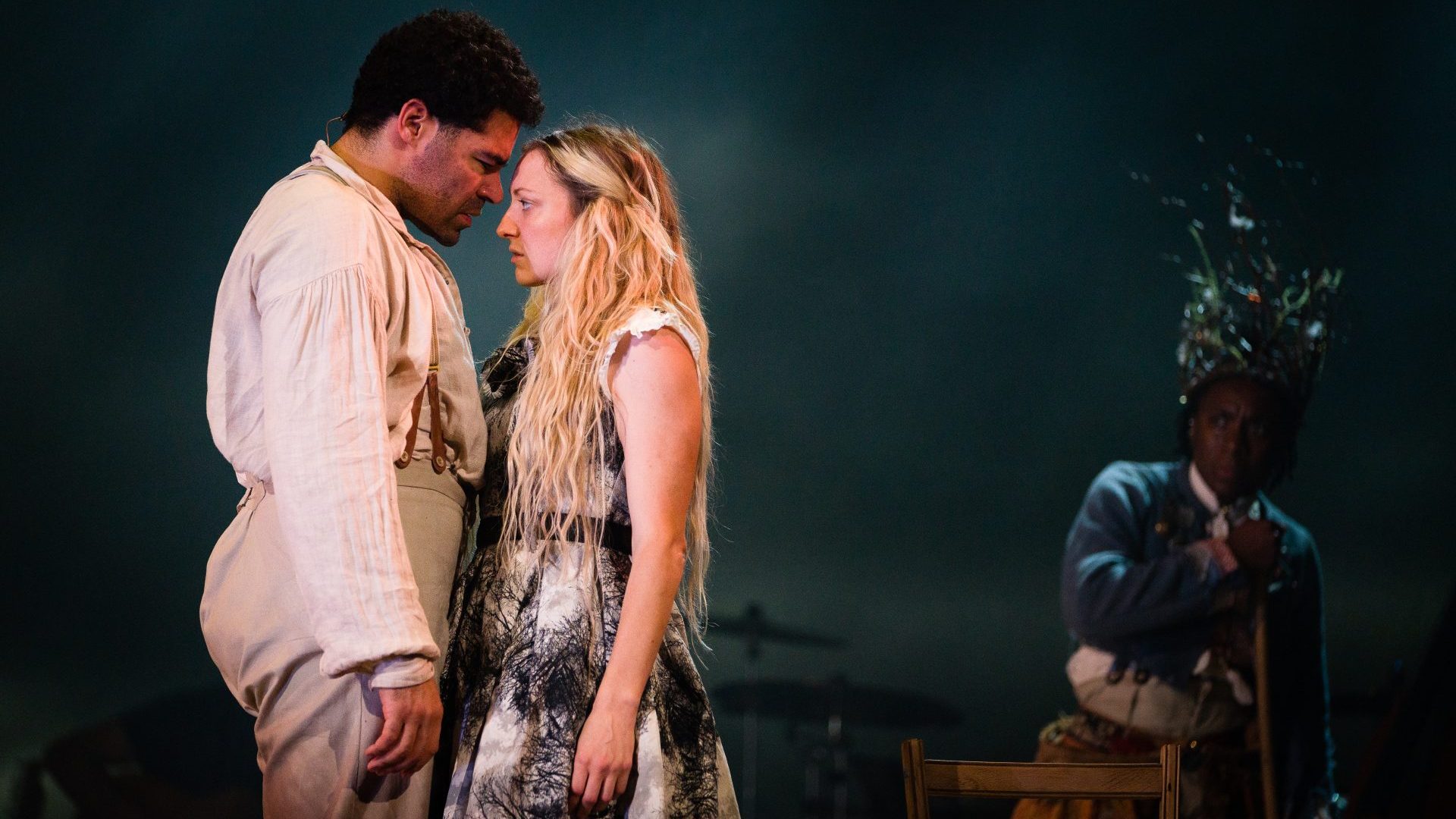Wuthering Heights
National Theatre, London until March 19
I remember when I went to interview Dame Jean Conan Doyle, the daughter of the man who created Sherlock Holmes, and found her sitting in despair in her drawing room. She explained that it was a constant trial protecting the spirit and the integrity of old Arthur’s work, and then, shaking her head in despair, she held up a gay porno video that was entitled Sherlock Homo and Dr Wet Thong.
Regrettably, I burst out laughing, which I need hardly say wasn’t entirely appreciated, but I understand how some people – not just the immediate family of their creators – feel a duty of care towards the classics. I might add I’ve just risked Googling this production on a work computer and nothing has come up, so it would appear with this particular crusade Dame Jean was victorious.
I don’t personally have a problem with classics being gently updated or parodied, but it does need to be done with wit and sensitivity. The production of Pride & Prejudice (sort of) that I saw at the Criterion before Christmas was a good example of this. The love that its creators had for Jane Austen shone through in every uproarious scene. I can forgive just about anything so long as it makes me laugh or think.
Emma Rice’s adaptation of Wuthering Heights at the National is, by contrast, witless and insensitive, and, worst of all, mind-numbingly boring. I sat watching it with a sense of growing resentment: this was 150 minutes of my life I was never going to get back.
It’s an example of a writer who is totally overcome by the sheer enormity of trying to put Emily Bronte on stage. It doesn’t help that Rice also directs, so there is no one around to tell her that what she’s doing isn’t working.
Subsidised theatre has no greater advocate than I but this production shows how, at its worst, it can be unforgivably complacent and self-indulgent. It’s as if no one at any point – from the moment the script first landed on the desk of the theatre’s boss Rufus Norris – had actually asked themselves if it had anything at all to offer to audiences. In the commercial theatre – especially now when money is so hard to come by – it would be inconceivable that a production like this would ever be green-lighted.
It’s played out on a vast stage that the set and costume designer Vicki Mortimer obviously thinks it’s clever to pare back to the walls and the ropes and pulleys. It looks to me like she simply couldn’t be bothered to actually do her job. A lot of what she did I just couldn’t really understand: at one point the actors talk to each other from chairs that have bits of other chairs stuck on top of them.
Bronte’s original novel has at best a nodding acquaintance with what is played out on the stage, and, in the principal roles Ash Hunter’s Heathcliff is so stiff and cumbersome that he feels more like Frankenstein’s creature than the romantic lead. Witney White as Catherine Earnshaw looks more perplexed than enamoured with him. There is so much going on – sometimes this show seems to think it’s a full-on musical and at other times a puppet show – that the two of them are quite frankly often the last thing on anyone’s mind.
There’s an awful lot of tedious exposition – breaking the old rule that theatre is about showing and not telling – and at one point Rice clearly realises she had better explain how the Earnsaws and the Lintons – the two grand Yorkshire families at the heart of the play – are interrelated and she actually has her actors walking around with chalkboards to attempt an all but incomprehensible family tree. Anyone who has read Bronte’s original work should stay well clear and anyone who hasn’t will find this boring and bewildering old tosh.
After the disastrous Manor, the National can and must do better. I’ve counted in and counted out a few artistic directors of the National over the years, but Norris’s tenure is the most disappointing of the lot.




